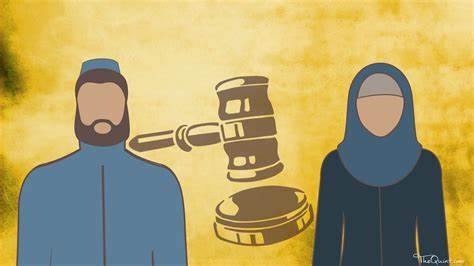Society cannot be changed in a single day. It takes years and decades for change and for those changes to be implemented. Indian society, with its vast culture and diversity, took years to develop and still has a long way to go. One such method of development is the judgments and decisions of the Supreme Court. With its abled and learned Judges, there have been some historical landmark judgments that have paved the way for development in India. While many of such decisions have been embraced with open hearts, there have been some decisions that led to chaos and bloodshed. Here are the top 20 judgments by the Supreme Court that have remarkably changed Indian Society.
1. Section 377
This section of the Indian Penal Code is concerned with homosexuality. Former British law criminalized all “unnatural sexual acts” between homosexuals. After several petitions, the Supreme Court of India, on the 6th September 2018, finally decriminalized section 377 of the IPC. It decriminalized all sexual acts between consenting adults in private. The judgment included the LGBTQ (Lesbian, Gay, Bisexual, Transgender Queer) members. This verdict is a step forward towards the betterment and ease of living of LGBTQ members, and it has been widely celebrated by everyone across the country. It gives freedom to all LGBTQ members to love and live freely.
Case law: Navtej Singh Johar v. Union of India

2. Adultery
Women are always treated as second-class citizens. One such oppressive scenario was the draconian law of adultery. The Act of adultery criminalizes the sexual intercourse of a man with the wife of another man without the consent of her husband and that man shall be held liable for the crime of adultery. This section indirectly discriminates against women by making them the “property” of their husbands as it does not consider adultery an offense if done with the consent of the woman’s husband. The husband was considered the owner of the wife. Adultery law created an absolute, irrational, and arbitrary right for a husband to his wife.
On September 28th, 2018, a five-judge bench ruled that Section 497 of the Indian Penal Code is unconstitutional and struck down the 150-year-old draconian law. Adultery is now the only ground for divorce. The Court stated that the wives are at par with their husbands and have equal rights and laws like adultery are arbitrary and highly patriarchal. These kinds of laws are a hindrance to the progression of the country.
Case law: Joseph Shine v. Union of India
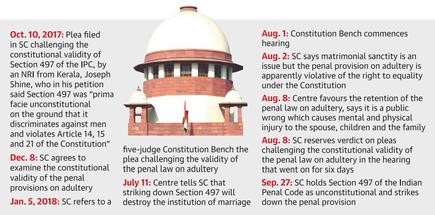
3. Rape
This crime against humanity causes immense physical, mental, and emotional damage. Such gruesome crimes are increasing day by day. One such way to reduce these offenses and keep them in check is by implementing stricter laws. After the horrific Nirbhaya case, some modifications are made to section 354 of the Indian Penal Code. The 2013 Amendment Act expanded the definition of rape, including oral sex and the insertion of any object into the woman. The punishment for rape was also made stricter. Separate penalties for repeat offenders were also introduced, including the possibility of the death sentence. Several sub-sections were added, such as sections 354A, 354B, 354C, and 354D, which dealt with sexual harassment and punishment for it, assault or intent to disrobe a woman, voyeurism, and stalking, respectively. Provisions for acid attack victims are also expanded.

4. Passive Euthanasia
Passive euthanasia is withholding the life-sustaining treatment. Terminally ill patients with prolonged impending death suffer greatly as they are in immense pain and agony, not to ignore the mental disturbance. Keeping in mind the condition of such patients, the Supreme Court ruled that passive euthanasia is allowed in India under exceptional circumstances. It was ruled in the case of Aruna Ramchandra Shaunbaug v. Union of India & Ors. The victim was living in a vegetative state for the past 42 years after the sexual assault.

5. Triple Talaq
The widely popular case dealt with triple talaq or instantaneous talaq. In 2016, a writ petition was filed by Ms. Shayara Bano in the Supreme Court challenging the constitutionality of triple talaq or talaq-e-biddat. Ms. Bano claimed that these practices violate the Right to Equality and the Right to Livelihood. She further argued that these practices were not protected by the Right to Freedom of Religion. On 22nd August 2017, the 5-judge bench, in a split of 3:2, ruled that the practice of talaq-e-biddat was highly arbitrary and held it unconstitutional. Parliament enacted the Muslim Women (Protection of Rights on Marriage) Act, 2019 which made the practice of talaq-e-biddat a criminal act, punishable with up to three years imprisonment.
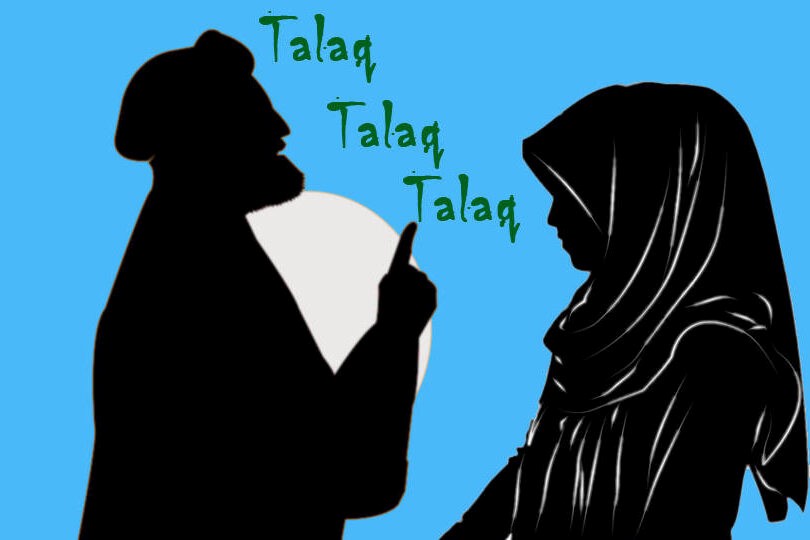
6. Absolute Liability
The rule of Absolute Liability, pronounced by the then Chief Justice of India P.N. Bhagwati, is one of the most historical judgments in India. The concept of Absolute Liability evolved in India in the case of M.C. Mehta v. Union of India, also known as the Oleum Gas Leak Case. It is based on the principle of strict liability but with no exceptions. The Supreme Court pronounced that where an enterprise/corporation is engaged in hazardous or inherently dangerous actions and if any harm results to anybody on account of the accident or any negligent activities, the enterprise would be held liable to compensate all those who are affected by accident.

7. Panchayat
The 73rd Constitutional Amendment Act was passed in 1992 and came into effect in 1993. The Act empowered the State governments to take the necessary steps that would lead to the formalization of the gram panchayats and help them operate as units of self-governance. This Act gave the status to the Panchayati Raj system as a constitutional body. It was an essential step towards the development of India from the grass-root level. The Panchayati Raj system is a three-tier governance body working at the Village, Block, and District levels. This Amendment has improved local self-government in the country vastly.
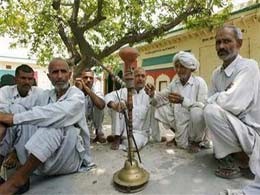
8. Right to Education
Education is one of the most critical aspects that help the overall development of an individual, his personality, and in the long run, in the development and progression of a country. Keeping in mind the importance of education, the 86th Constitutional Amendment Act in 2002 added several points in the furtherance of the issue. Article 21-A was added as a Fundamental Right, which provided for free and compulsory education to all children between the age of 6-12 years. It was also added as a Fundamental Duty under Article 51A(k). Under Directive Principles is provided under Article 45 which directs all the guardians of children to provide them with the opportunity of elementary and compulsory education.
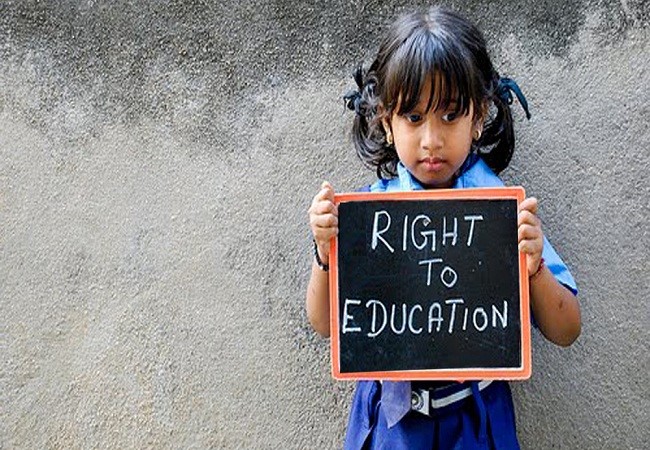
9. Voting Age
The 61st Amendment Act, 1988 was a positive step towards promoting Universal Adult Franchise, as it lowered the voting age to 18 years from 21 years for elections. The proposal to reduce the voting age to 18 years was brought about, to increase the participation of the youth in the electoral process of the country. Today, in India about more than 60 lakh voters are 18 years of age, and they do play a decisive role in the outcome of the elections happening in India.
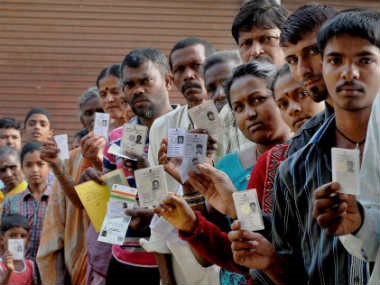
10. Death Penalty
The 5-judge bench of the Supreme court announced some essential limitations on the death penalty by limiting it to “rarest of rare cases.” For heinous and gruesome crimes, the Supreme Court, by a majority of 4:1, reaffirmed its earlier decision, and it held that the provision of the death penalty as an alternative punishment for murder under section 302 insofar is neither unreasonable nor it is against the public interest. It should be exceptional and grave circumstances and imposition of the death sentence should only be in the rarest of rare cases.
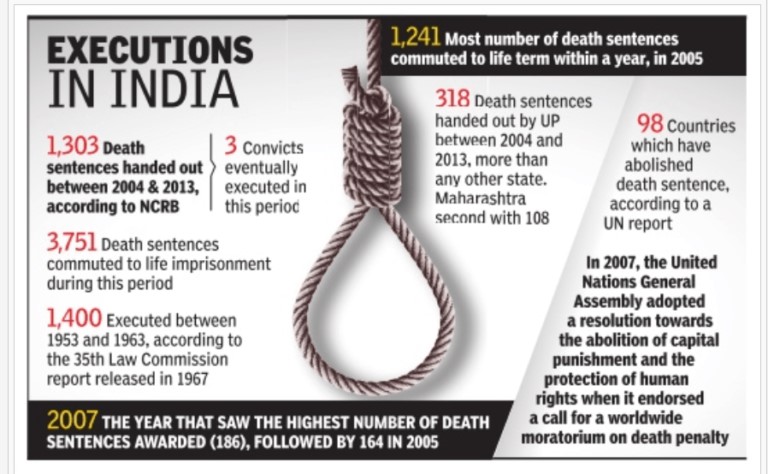
11. Sabarimala Verdict
Sabarimala is a prominent Hindu temple dedicated to the Hindu deity Lord Ayyappa in Kerala’s Pathanamthitta district. On 28th September 2018, the Supreme Court gave its path-breaking judgment on the restriction of the entry of women going through menstruation between the age of 10 to 50 years in the temple. The Court held that excluding women denied them their freedom of worship, guaranteed under Article 25(1). The practice of preventing women’s entry into the Sabarimala temple was held unconstitutional by the Supreme Court. It held the practice to be violative of Articles 14, 15, 19(1), 21, and 25(1), which guarantee the fundamental rights to equality, liberty, and freedom of religion.
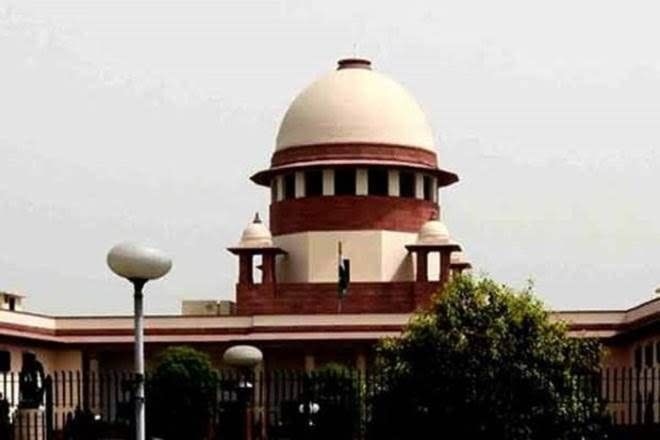
12. Citizenship Amendment Act
The Citizenship (Amendment) Act 2019, passed by the Indian Parliament on 11th December 2019 aims at amending the Citizenship Act of 1955. The amended Act seeks to change the previous act that lets people acquire citizenship. This act states that before 31st December 2014, whoever came to India by any way from the three countries, namely- Afghanistan, Bangladesh, and Pakistan, and belonging to any of the six communities, namely- Hindu, Sikhs, Buddhists, Jains, Parsis, and Christians, will not be termed as “illegal immigrants.” The Act met with a lot of hue and cry and witnessed various protests and riots across the country. There was strong opposition from the masses to the Act.
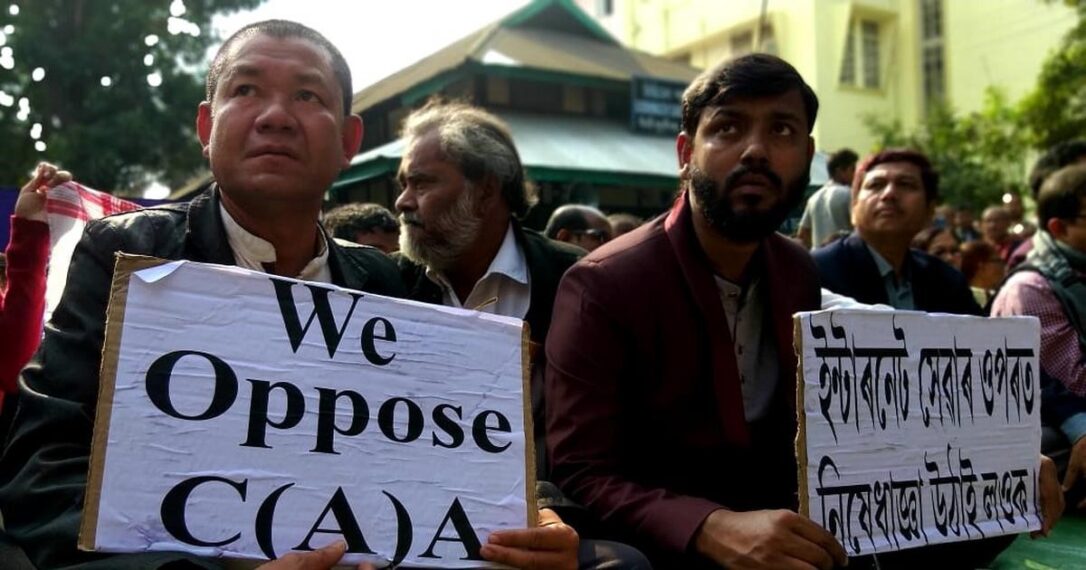
13. Ayodhya Case
Popularly known as the “Ayodhya Dispute”, this case is considered India’s longest-running dispute. The dispute revolved around Ram Janmbhoomi – Babri Masjid land concerning the ownership of the land in Ayodhya, Northern India. What followed was a series of communal riots and bloodshed. 9th November 2019, the much-disputed case came to an end when the Supreme Court pronounced that the ownership of 2.77 acres of disputed land would be given to the deity of Ram Lalla, and The Sunni Waqf Board will be given a five-acre “suitable” plot to build a new mosque. By this judgment, the 70-year-old dispute came to an end.
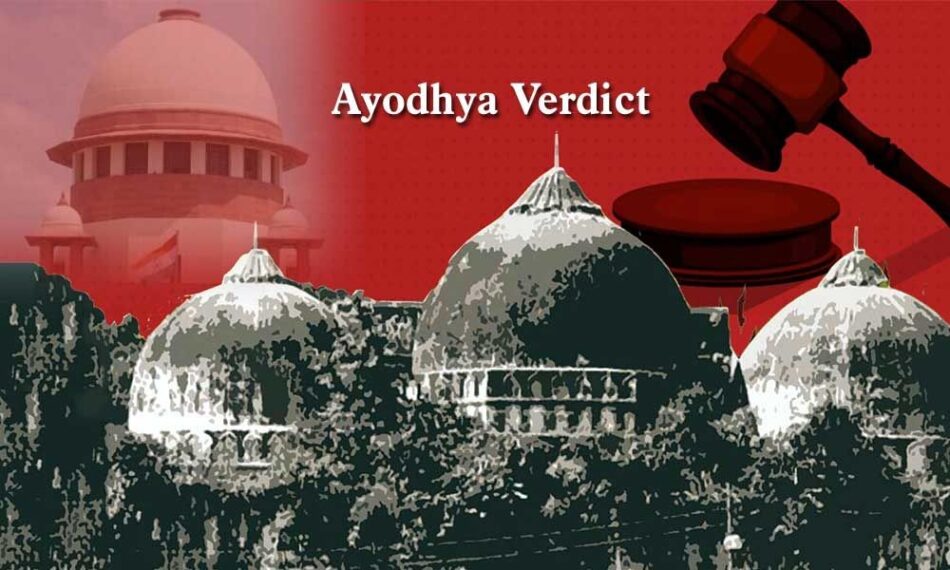
14. Women as Coparceners
Earlier, women had very few rights regarding property rights. They were not entitled to acquire any ancestral property, according to Hindu Succession Act 1956. In August 2020, The Supreme Court ruled in the landmark case of Vineeta Sharma vs. Rakesh Sharma that women are entitled to coparcenary rights from the moment they are born. It led that women are coparceners in Joint Family Property (Hindu). This judgment is a step ahead toward gender equality in Hindu property law.
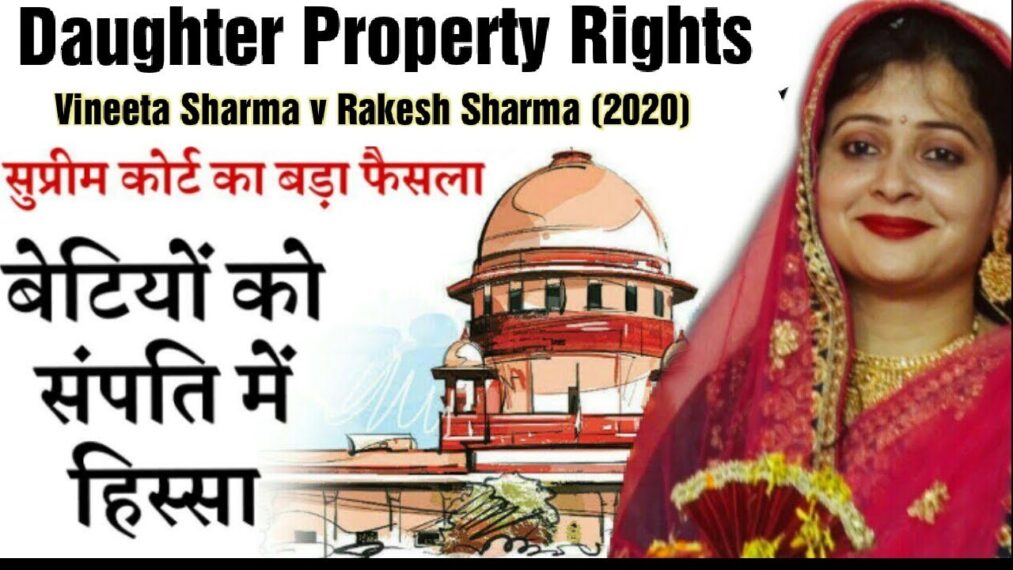
15. Recognition of Transgenders
In the landmark judgment in NALSA v. Union of India in 2014, the Supreme Court of India pronounced that transgender people have to be recognized as the third gender. It was also ruled that they would be categorized under OBC (Other Backward Classes). This judgment was a step forward in the way for Transgenders.
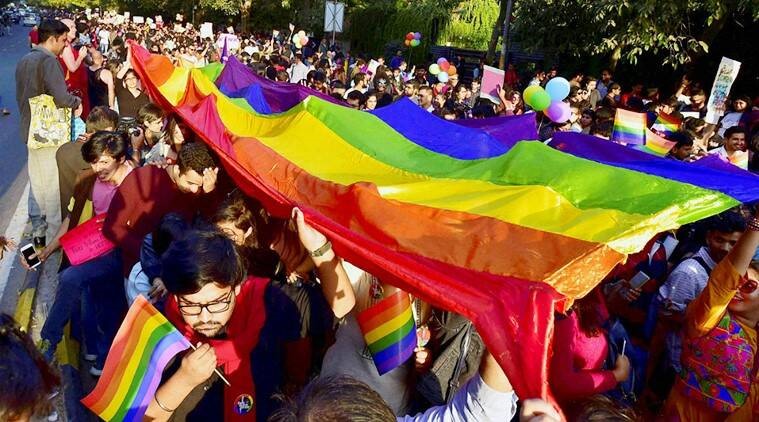
16. Vishakha Guidelines
In 1997, in a landmark judgment, the Supreme Court laid down various guidelines to be followed by corporations and establishments regarding complaints about sexual harassment. This judgment was pronounced in Vishakha V. State of Rajasthan which was concerned with sexual harassment in the workplace. This judgment is considered one of the most positive steps toward protecting women from sexual harassment.

17. Bigamy in India: Sarla Mudgal Case
In a landmark judgment on 10th May 1995, the Supreme Court of India took a step ahead in the problem of polygamy in India and laid down certain principles against polygamy and the practice of solemnizing a second marriage without dissolving the first one. It pronounced that the second marriage is invalid unless the first marriage has not been dissolved according to the Hindu Marriage Act 1955, irrespective of converting into Islam.
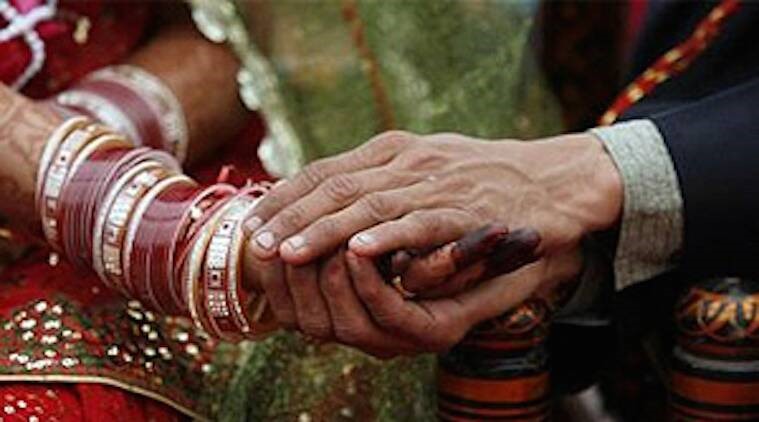
18. Right to Privacy
In another landmark judgment, the Supreme Court of India in 2017 unanimously pronounced that the Right to Privacy is Fundamental Right, enshrined under Article 21, which deals with the Right to Life and Personal Liberty. As Article 21 falls under Part III of the Constitution, the Right to Privacy automatically comes under Fundamental Rights, the Court pronounced in Justice K. S. Puttaswamy v. Union of India.

19. Reservation
Supreme Court of India, in another landmark decision, pronounced a judgment on the issue of reservation in India in the case Indira Sawhney v. Union of India also popularly known as the Mandal Case. Certain guidelines regarding reservations were issued. It said that the reservation of OBC (Other Backward Classes) would be up to 27%, and reservation cannot be more than 50%.

20. Shah Bano Case
This is one of the historical cases which paved the way for Muslim women. The case of Mohd. Ahmad Khan vs. Shah Bano Begum also called the Shah Bano case, is one of the milestones in Muslim women’s fight for rights in India and the battle against the Muslim personal law. It laid the ground for thousands of women to make legitimate claims that they were not allowed before. The long-fought battle of Shah Bano Begum came to a positive end when the Supreme Court ruled in her favor mandating maintenance to be given to aggrieved divorced Muslim women.
